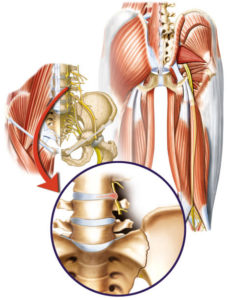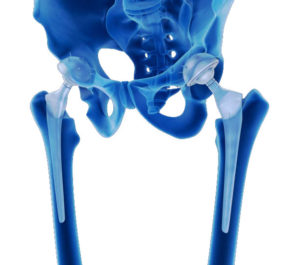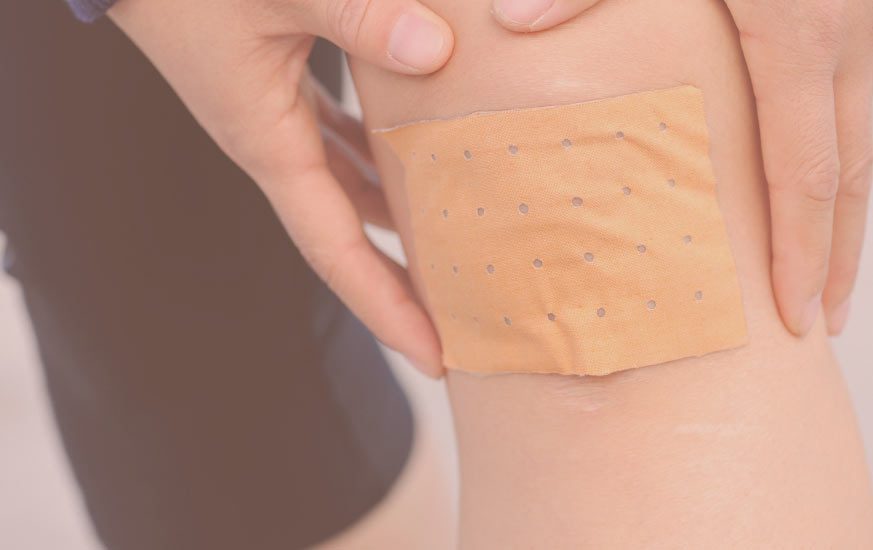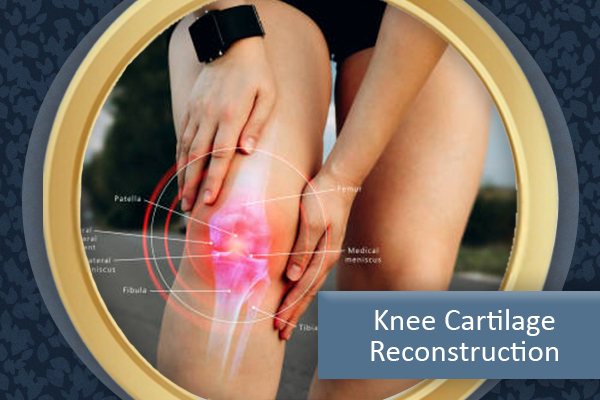Faster Relief
A traditional hip replacement treatment requires a 6-8 week recovery period and often an overnight stay in the hospital immediately following the procedure. Anterior hip replacement surgery bypasses damage to the surrounding muscle tissue, reducing recovery times to just 1 week.
What is Anterior Hip Replacement?
Anterior hip replacement surgery is the process of entering through the front of the body to replace the hip bone.
Without detachment of muscle from pelvis or femur, gluteal muscle untouched, most important muscles for hip mobility.
Advantages of Anterior Hip Replacement
Even the most successful treatment methods deserve a close examination from time to time to evaluate what can be done to improve the efficiency and effectiveness of the procedure. That is the origin of anterior hip replacement surgery.

Before, lateral (through the side of the body) hip replacement was the go-to method for orthopedic surgeons.
It allowed for fairly easy access to the hip bone in order to perform the necessary movements to operate on the hip bone.
Unfortunately, this required doctors to remove/detach tissue from the gluteal, femur or pelvis muscles, leading to lengthy recovery periods, painful recovery and left patients susceptible to further hip malfunction.
Through deep analysis of the hip replacement process, doctors realized that they could operate within a space between the muscles by entering through the front of the body. This process provides these distinct advantages:
- Little to no damage to major muscles – Lateral hip replacement required doctors to cut through major muscles in order to access the hip joint. This was painful, extended the recovery period and left patients susceptible to hip dislocations due to the weakened muscles.
- Faster recovery – Anterior hip replacements offer a much shorter recovery period (1 week) because it does not damage muscle tissue. Patients will not have to stay overnight and can return home the same day as the procedure.
- Decreased risk of hip dislocation – Without tearing the muscles that hold the hip ball in its socket, anterior hip replacement patients will have stronger supporting muscle tissue to prevent further hip dysfunction.
- Improved flexibility – A faster recovery period is important. It allows patients to begin reestablishing their flexibility earlier, preventing the hips from locking up. Patients can immediately begin bending at the waist or taking on weight as soon as they see fit.
Challenges of Anterior Hip Replacement
 Being a newer treatment method, not all physicians will have the same experience performing an anterior hip replacement as they do performing lateral or posterior hip replacement surgeries.
Being a newer treatment method, not all physicians will have the same experience performing an anterior hip replacement as they do performing lateral or posterior hip replacement surgeries.
An anterior hip replacement is also a more technical operation than traditional hip replacement surgeries. Only the most advanced orthopedic surgeons should perform this operation. At All-Pro Orthopedics, we have the training and experience to confidently perform anterior hip replacement surgery in Palmetto, Pembroke Pines, West Palm Beach and Hollywood.
Any hip replacement operation has the potential for wound healing complications and nerve damage. An anterior hip replacement has not shown signs of increasing the risk of these rare complications.
Anterior vs. Lateral Hip Replacements
Lateral hip replacement surgery:
- Comes through the side and requires the removal of muscle tissue
- 6-8 week recovery period that can be painful depending upon the amount of muscle tissue removed during the procedure
- The patient stays overnight in the hospital to recover from initial surgery
- Patient susceptible to hip dislocation if the muscles do not heal quick enough to hold the new hip ball within the socket
Anterior hip replacement surgery:
- Small incision through the front of the body
- 1 week recovery period
- No overnight stay, the patient returns home after the operation
- No damage to or removal of vital muscle tissue
- The patient can bend and utilize hip joint as they see fit following the procedure
Am I a Candidate for Anterior Hip Replacement?
Most patients that are eligible for traditional hip replacement surgery are also eligible for anterior hip replacement surgery. Due to the nature of entering through the front of the body and operating between muscle tissue, patients that are obese or highly muscular may not be suitable candidates for anterior hip replacement. The extra tissue in both patients can make it challenging to access the hip bone without having to remove tissue. If removing of tissue is required, utilizing traditional lateral hip replacement is more suitable for these patients.
Ultimately you will want to meet with an orthopedic surgeon or sports medicine specialist to see if anterior hip replacement is right for you. You can contact one of our friendly appointment specialists at (954) 322-1110 to schedule your initial consultation.
Common Questions about Anterior Hip Replacement
Is anterior approach better for hip replacement?
While the appropriate surgical approach depends on a variety of factors, there are some notable advantages to going through anterior hip replacement as compared to the posterior approach.
One of the main pros is that the anterior approach causes less muscle damage in general, as there are fewer muscles involved in the surgery. Consequently, post-operative pain is minimized since your surgeon can avoid cutting major muscles. This would result in a quicker recovery time as well.
It’s still best to consult with orthopedic specialists, such as our team in Florida, to help find the right approach for you.
How painful is an anterior hip replacement?
In comparison to the lateral and posterior approaches, using an anterior approach allows for your surgeon not to cut through muscles during surgery. They won’t have to make repairs after the procedure, too.
Because of this, among the benefits of an anterior hip replacement is that it results in less pain for patients.
How long does it take to recover from an anterior hip replacement?
Generally, anterior hip replacement has a shorter recovery and rehabilitation period compared to the other approaches.
The typical recovery period takes two to three weeks, after which patients can go back to their everyday tasks.
Your orthopedic surgeon and physical therapist will work together to ensure that you can safely return to more rigorous activities such as contact sports or hard labor.
Who is a good candidate for anterior hip replacement?
Patients dealing with osteoarthritis are the usual candidates for this particular approach. It’s also been found that most patients who are candidates for traditional hip replacement can also undergo the anterior approach.
In contrast, patients who are overweight or those who are extremely muscular may be less ideal candidates for this approach.
To find out whether you are a good candidate for anterior hip replacement, you should first consult with experts. Our orthopedic specialists at All-Pro are trained specifically to determine and plan the ideal approach for you.
What happens first week after anterior hip replacement?
After the surgery, will need to stay in the hospital for around 2 to 4 days following the procedure, wherein your doctors will encourage some movement such as standing or walking.
Shortly after you leave the hospital, your orthopedic team will advice you on the next steps to manage your pain and begin your recovery.
Patients usually undergo physical therapy, which encourages a higher success rate for recovery. It is recommended to follow the advice of your assigned specialists, from the first week up until you fully recover.
Which heals faster anterior or posterior hip replacement?
As it is less invasive, the anterior approach also has a shorter healing period than a posterior hip replacement. Your surgeon will only need to make a smaller incision and is able to preserve muscle during the procedure, resulting in less recovery time and post-operative pain.
Of course, whichever approach you choose, it’s still vital that you work with a specialist who is well-equipped to deliver good results. Our orthopedic team in Florida are all trained to provide the best service for you.














